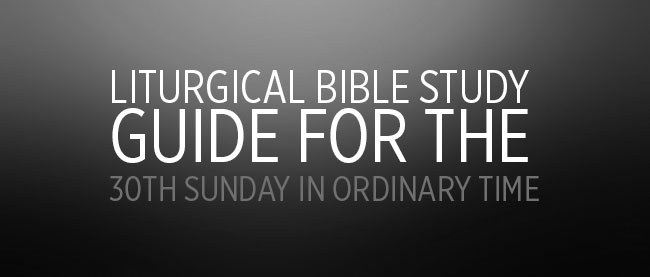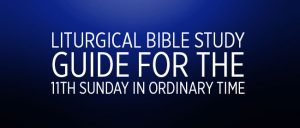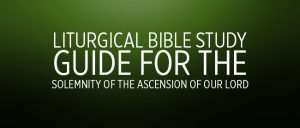1st Reading – Exodus 22:20-26
Like his forebears, Abraham and Isaac, Jacob led a semi-nomadic existence in Canaan. He was forced by a severe famine to emigrate with his entire family to Egypt, where they settled around the beginning of the eighteenth century before Christ.
Over the next 400 years the Scriptures tell us nothing about the stay of the Jews in Egypt. God makes no revelation during this period. All we know is that by the end of it the Hebrews had become a numerous, strong, hardworking people; so much so that the Egyptians, growing afraid of them, forced them into slavery.
The book of Exodus (which means “leaving”) is a continuation of the story of Genesis. The fact that it takes its name from the Israelites’ going out of Egypt shows the importance of this episode in the life of Israel.
Although this book takes the form of a popular narrative, easy for the people to understand, it also contains important religious teachings. The episodes in this history obviously involve special divine intervention: there is no other explanation for the liberation of Israel or the crossing of the Red Sea or its survival for so long in the
wilderness.
As we approach our reading today we find ourselves with the Israelites at the base of Mount Sinai. God has offered a covenant [“Therefore, if you hearken to my voice and keep (shammar) my covenant, you shall be my special possession, dearer to me than all other people, though all the earth is mine. You shall be to me a kingdom of priests, a holy nation” (Exodus 19:5-6)]. Shammar is a word which can be translated as “keep” but might be better translated as “guard (keep safe)” (see Genesis 2:15). The people have accepted the invitation [“Everything the LORD has said, we will do” (Exodus 19:8)].
The people however are afraid to go up the mountain so they send Moses in their stead. Moses receives the ten commandments verbally and verbally delivers them to the people. Moses then ascends the mountain again and God gives him other laws: the treatment of Hebrew slaves, rules of conduct for personal injuries, the rules and penalties
for the protection of property, laws of justice and mercy, and laws of social responsibility – it is from these laws that our reading for today is taken. Today’s reading appears as Exodus 22:21-27 in most translations but the New American Bible, Jerusalem Bible, and New Jerusalem Bible have it as Exodus 22:20-26.
2nd Reading – 1 Thessalonians 1:5c-10
In evangelization the initiative lies with God and it is He who causes the preaching of the Gospel to bear fruit. The election of the Christian is made by God and proceeds from His love (1:4); His son, Jesus, “who delivers us from the wrath to come (1:10), sustains our hope (1:3); the action of the Holy Spirit renders the preacher’s word persuasive (1:5) and fills with joy those who listen to it no matter what trials may befall them (1:6). The core of preaching is the gospel (1:5), that is, the good news of salvation foretold by the prophets and brought to fulfillment by our Lord Jesus Christ. The proclamation of this news tells those who listen that they are Abeloved by God,” specially chosen by Him (1:4). They are called to turn to God (1:9), who will give the three theological virtues (faith, hope and charity) to those who accept the Christian message (1:3). Faith and the sanctifying action of the Holy Spirit lead believers to salvation, to attaining the glory of the Lord Jesus (2 Thessalonians 2:13-14). Let’s read last week’s reading along with the one for this week.
Gospel – Matthew 22:34-40
Last week we heard Jesus’ reply to the question of paying taxes – a question which had been designed to trip Him up. After this, and before today’s reading, Jesus is approached by the Sadducees who question Him about the resurrection and whose wife the woman with seven husbands will be. Jesus reply is that in heaven there is no marriage because all are like angels, but there certainly is an afterlife because God had called Himself the God of Abraham, Isaac and Jacob (Exodus 3:6) and He is the God of the living and not the dead. He has sidestepped the Sadducees and has again astounded the crowd.
Bible Study guide from Fr. Cielo Almazan





